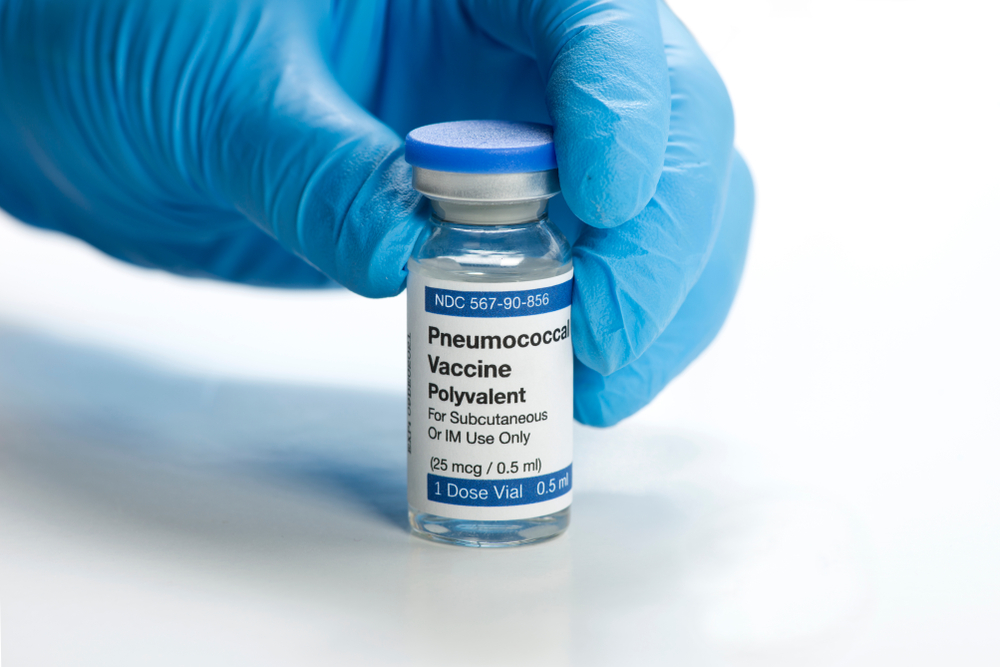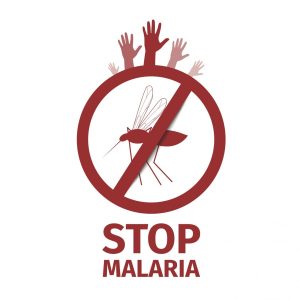The pneumococcal vaccine lowers the risk of being infected with pneumococcal disease, a major cause of morbidity and mortality worldwide. Pneumococcus, also known as Streptococcus pneumoniae, causes pneumococcal disease.
This disease can cause milder conditions like:
- Sinusitis: inflammation of the sinuses, with symptoms similar to a flu
- Otitis media: ear infection, causing ear pain
But also more severe ones requiring hospitalisation:
- Pneumonia: lung infection
- Meningitis: infection of the lining of the brain and spinal cord
- Bacteremia: blood infection
40-50% of children and 20-30% of adults are healthy, asymptomatic carriers of the bacteria i.e. Pneumococcus is present in the nose and throat without causing disease. It spreads from one person to another via respiratory droplets like saliva or mucus. This disease commonly affects the extremes of age, i.e, young children and the elderly, and individuals with weakened immune systems.
There are 91 serotypes of Pneumococcus, and vaccination confers protection against those which commonly cause disease. Vaccination is all the more crucial with the rise of antibiotic-resistant strains. Globally, pneumococcal vaccination has been routinely incorporated into childhood immunisation schedules.
What are the types of Pneumococcal Vaccines available?
There are 2 types of vaccines available:
- Pneumococcal Polysaccharide Vaccine (PPSV23, Pneumovax 23)
- Pneumococcal Conjugate Vaccine (PCV13, Prevnar 13)
- Both vaccines are made from inactivated bacteria.
- The vaccines induce production of antibodies by the immune system, thereby protecting against disease should there be subsequent infection with Pneumococcus.
- PCV13 vaccine protects against 13 pneumococcal bacteria strains that most commonly cause pneumococcal disease, while the PPSV23 protects against 23 strains.
- PCV13, when given before PPSV23, provides extended protection in a selected group of patients, as compared to giving PPSV23 alone.
Who Should Receive the Pneumococcal Vaccine?
1) Infants and young children <2 years of age:
- CDC recommends routine administration of PCV13 as a series of 4 doses; one dose each at 2 months, 4 months, 6 months, and 12 through 15 months.
2) Elderly ≥65 years old
- Healthy and immunocompetent: CDC recommends 1 dose of PPSV23
3) Anyone with chronic conditions e.g.
- Heart, kidney or liver diseases
- Lung disease like asthma and chronic obstructive pulmonary disease (COPD)
- Diabetes mellitus
- Chronic heart disease, such as heart failure and cardiomyopathy
- Active smokers
- Alcohol use disorder
4) People with weak immune systems (lowered resistance to infections) including but not limited to:
- Cancer
- Human immunodeficiency virus (HIV)
- Abnormal spleen function
- Blood disorders e.g. sickle cell disease
- Organ transplant patients
- Those on immunosuppressive therapy
5) Persons at risk for meningitis
- Placement of cochlear implant – this runs between the middle and inner ear, bacteria within the middle ear may pass along the implant into the normally sterile inner ear. The inner ear has connections with the brain, through which the infection may spread, causing (Pneumococcal) meningitis.
- Persons with CSF (cerebrospinal fluid – fluid that surrounds brain and spinal cord) leaks
Is it necessary to give both PCV13 and PPSV23?
Usually, both PCV13 and PPSV23 are given to certain high-risk populations (aforementioned groups 3 – 5). The first dose of PPSV23 is given ≥8 weeks after any prior PCV13 dose.
As immunity to PPSV23 wanes with time, revaccination may also be recommended on a case-by-case basis. The optimal approach to revaccination is not conclusive and recommendations vary among experts.

Consult a doctor for the number of recommended doses and types of vaccines.
Who should not take the Pneumococcal Vaccine?
1. Any person who has a history of severe allergy to
- an earlier dose of the vaccine (PPSV23 or PCV13)
- a Diphtheria-toxoid containing vaccine
2. For anyone with acute moderate or severe illness, vaccination should be delayed; otherwise minor illnesses like common cold does not affect vaccination. Check with your doctor for suitability.
What are the side effects of getting vaccinated?
Some minor reactions include:
- Localized redness, swelling, or pain at the injection site
- Tiredness
- Low grade fever <38℃
- Headache, body ache
These usually self-resolve in 2 to 3 days but analgesics e.g. paracetamol may be taken for relief from pain/fever.
There is a very rare chance that the vaccine could result in a severe allergic reaction (anaphylaxis), presenting as:
- Breathing difficulty
- Swelling of eyes/lips/tongue
- Itchy skin rash over whole body
Seek immediate medical attention if anaphylaxis is suspected.












